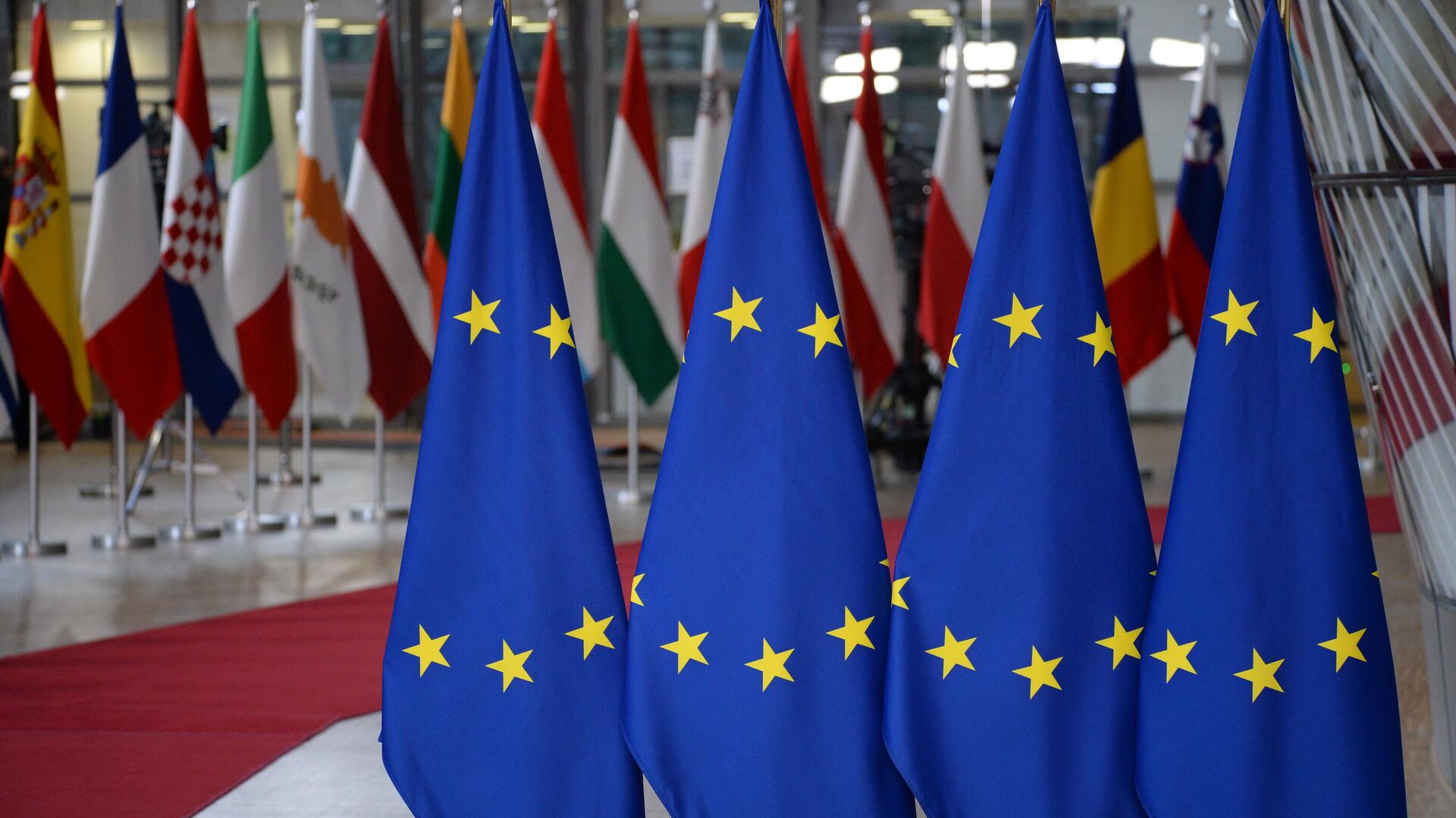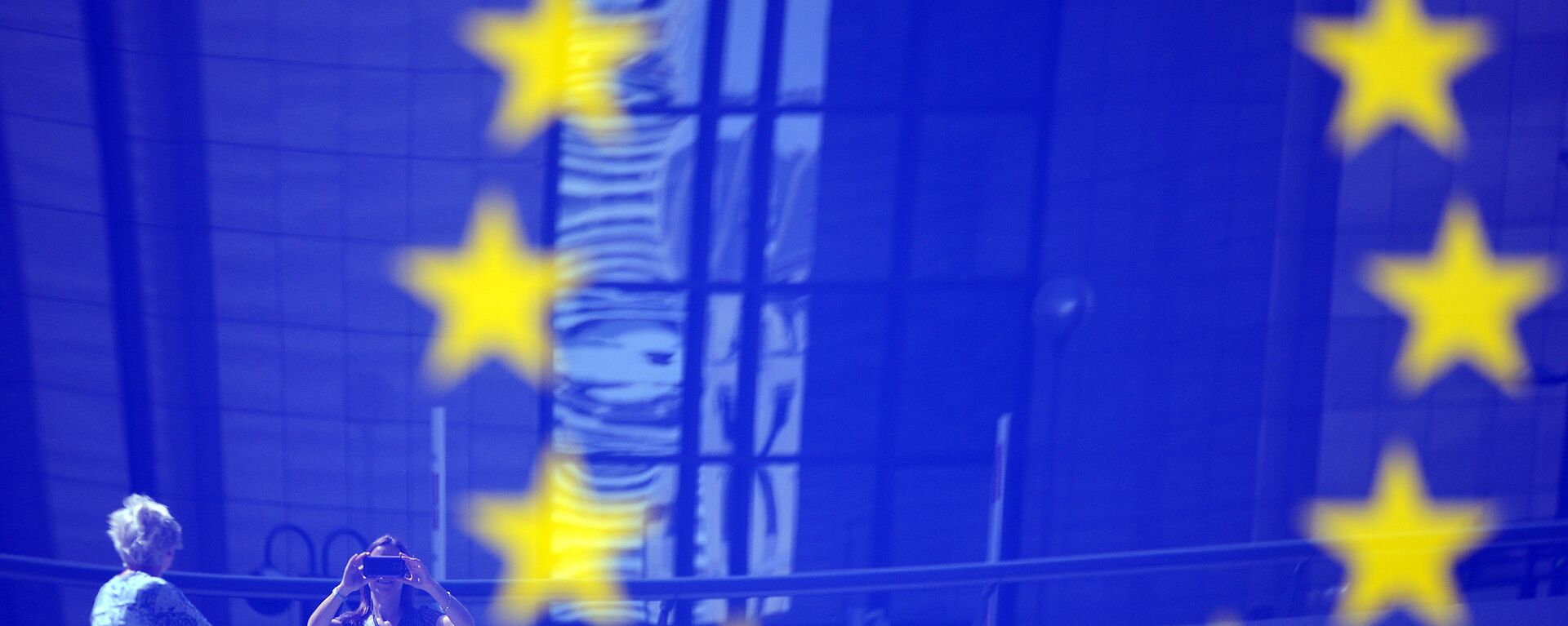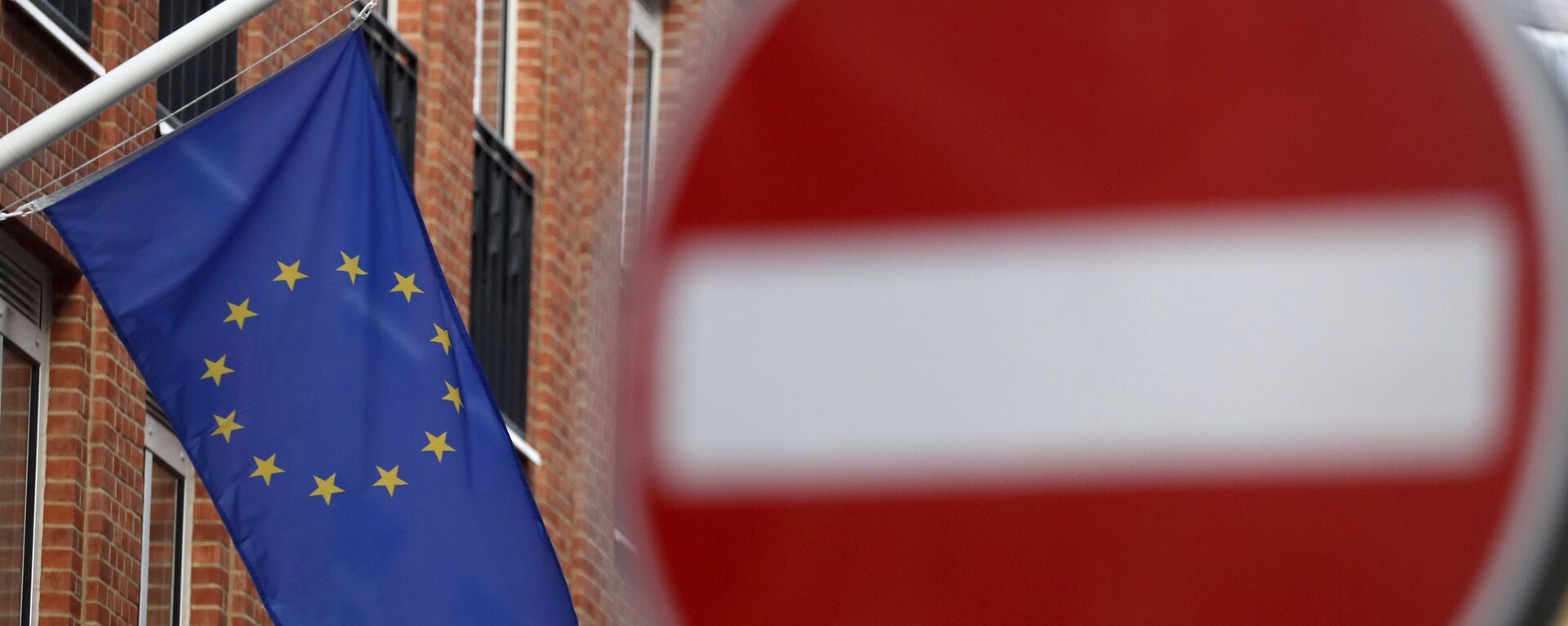https://sputnikglobe.com/20240626/germans-objection-to-ukraine-support-reflected-in-poor-electoral-results--scholz-1119128022.html
Germans’ Objection to Ukraine Support Reflected in Poor Electoral Results – Scholz
Germans’ Objection to Ukraine Support Reflected in Poor Electoral Results – Scholz
Sputnik International
Many in Germany take issue with anti-Russian sanctions and the country’s billions of euros in aid to Ukraine, which was “reflected in the election results,” Chancellor Olaf Scholz admitted in an interview with German media outlet ARD.
2024-06-26T01:42+0000
2024-06-26T01:42+0000
2024-06-26T01:42+0000
world
europe
european union (eu)
olaf scholz
peter szijjarto
hungary
ukraine crisis
anti-russian policy
eu sanctions
germany
https://cdn1.img.sputnikglobe.com/img/07e8/06/19/1119128163_0:159:3077:1889_1920x0_80_0_0_8631286de9d3e7ee2af2e7d5735712f5.jpg
Despite the population’s clear signal Scholz is seemingly unwilling to reconsider the current policy, claiming there is “no alternative.”Hungarian Foreign Minister Peter Szijjarto touched on Europe’s divisive rhetoric on the matter.The ruling Social Democratic Party led by Scholz came in third in recent EU legislative elections with about 14% of the vote. The opposition CDU/CSU bloc took first place with 30% support, followed by the AfD with 16%.Eurosceptic victories in EU elections demonstrate people's discontent with Brussels' agenda, particularly its warmongering and massive infusions of funding to Kiev.French President Emmanuel Macron’s hawkish rhetoric about sending troops and Mirage 2000 warplanes to Ukraine cost his centrist Renaissance party in the recent elections, with Marine Le Pen's National Rally 15 percent ahead of Macron’s bloc.The German AfD party, known for its anti-Ukraine sentiment, secured 15.9% of the vote nationwide with 15 seats in the European Parliament, second only to the Christian Democrats.Similar trends are witnessed in Austria, where the right-wing populist FPO party prevailed, in Belgium, with the right-wing party Vlaams Belang securing 14% of the vote, in the Netherlands, where Geert Wilders’ right-wing anti-immigrant Party for Freedom won the most seats, and in Spain, where the conservative opposition People's Party (PP) obtained some 34% of the vote.
https://sputnikglobe.com/20240610/eurosceptic-party-wins-exposes-growing-rift-between-eu-public-and-governments-1118895122.html
https://sputnikglobe.com/20240624/eu-finds-legal-loophole-to-bypass-hungarys-veto-on-arms-purchase-for-ukraine---reports-1119091339.html
hungary
germany
france
ukraine
brussels
austria
belgium
netherlands
spain
Sputnik International
feedback@sputniknews.com
+74956456601
MIA „Rossiya Segodnya“
2024
Sputnik International
feedback@sputniknews.com
+74956456601
MIA „Rossiya Segodnya“
News
en_EN
Sputnik International
feedback@sputniknews.com
+74956456601
MIA „Rossiya Segodnya“
Sputnik International
feedback@sputniknews.com
+74956456601
MIA „Rossiya Segodnya“
eu election, european election results, eurosceptic parties winning eu elections, right wing parties, right-wing parties, election results, scholz lost, far-right parties, far right wins, far-right wins, ukrainian crisis, arms for ukraine, support for ukraine, aid for ukraine, ukraine aid
eu election, european election results, eurosceptic parties winning eu elections, right wing parties, right-wing parties, election results, scholz lost, far-right parties, far right wins, far-right wins, ukrainian crisis, arms for ukraine, support for ukraine, aid for ukraine, ukraine aid
Germans’ Objection to Ukraine Support Reflected in Poor Electoral Results – Scholz
Many in Germany take issue with anti-Russian sanctions and the country’s billions of euros in aid to Ukraine, which was “reflected in the election results,” Chancellor Olaf Scholz admitted in an interview with German media outlet ARD.
Despite the population’s clear signal Scholz is seemingly unwilling to reconsider the current policy, claiming there is “no alternative.”
Hungarian Foreign Minister
Peter Szijjarto touched on Europe’s divisive rhetoric on the matter.
“The European Union continues indulging in military hysteria while ignoring the will of its citizens. It is starting to cross red lines,” he told journalists after a meeting of EU foreign ministers in Luxemburg.
The ruling Social Democratic Party led by Scholz came in third in recent EU legislative elections with about 14% of the vote. The opposition CDU/CSU bloc took first place with 30% support, followed by the AfD with 16%.
Eurosceptic victories in
EU elections demonstrate people's discontent with Brussels' agenda, particularly its warmongering and massive infusions of funding to Kiev.
French President Emmanuel Macron’s
hawkish rhetoric about sending troops and Mirage 2000 warplanes to Ukraine cost his centrist Renaissance party in the recent elections, with Marine Le Pen's National Rally 15 percent
ahead of Macron’s bloc.
The
German AfD party, known for its anti-Ukraine sentiment, secured 15.9% of the vote nationwide with 15 seats in the European Parliament, second only to the Christian Democrats.
Similar trends are witnessed in Austria, where the right-wing populist FPO party prevailed, in Belgium, with the right-wing party Vlaams Belang securing 14% of the vote, in the Netherlands, where Geert Wilders’ right-wing anti-immigrant Party for Freedom won the most seats, and in Spain, where the conservative opposition People's Party (PP) obtained some 34% of the vote.




